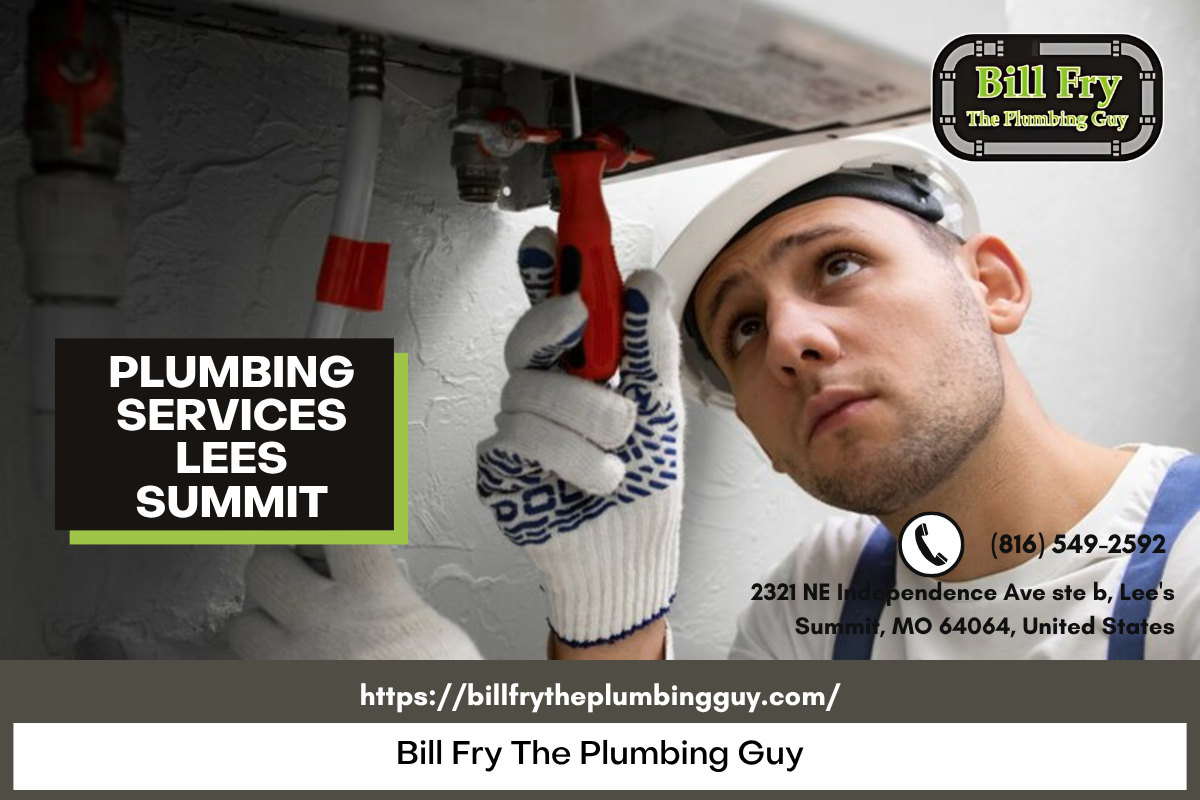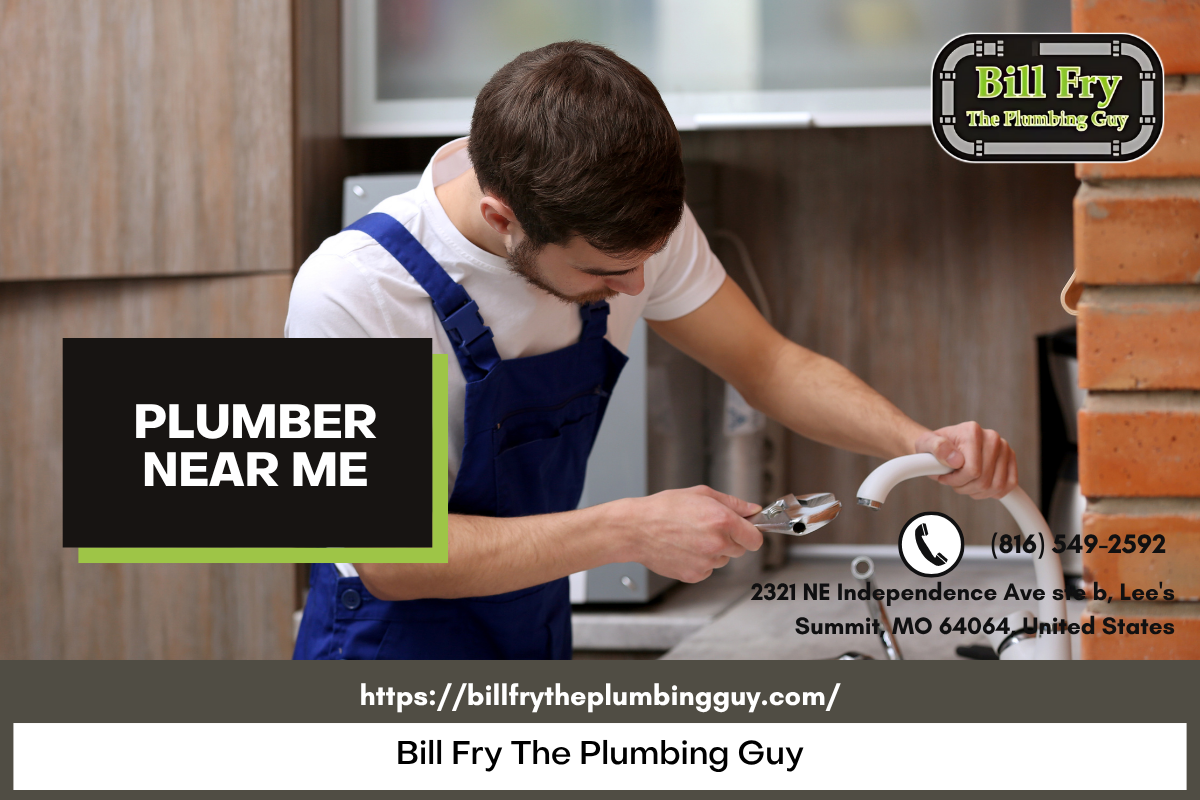

Water conservation is more important now than ever. With the increasing demands on our water supply and the pressing issues of climate change, understanding how to conserve water can make a significant difference. In this article, we’ll delve into expert tips from plumbers in Lee's Summit to help you save water, lower your utility bills, and protect https://simonwrdi229.wpsuo.com/exploring-the-different-types-of-plumbing-services-offered-in-lee-s-summit the environment.
Water Conservation Tips from Expert Plumbers in Lee’s Summit
When it comes to conserving water, expert plumbers in Lee's Summit have seen it all. They understand the intricacies of plumbing systems and how small changes can lead to significant results. Here are some top tips straight from those who know best:
Fix Leaks Promptly
A dripping faucet might seem harmless, but did you know that a single leak can waste over 3,000 gallons of water per year? Expert plumbers recommend inspecting faucets, toilets, and pipes regularly for leaks. If you find any signs of leakage, whether it's dripping or pooling water, contact local plumbing services immediately.
Install Low-Flow Fixtures
Upgrading to low-flow showerheads and faucets can save substantial amounts of water without sacrificing performance. These fixtures use aerators to reduce water flow while maintaining pressure, allowing you to enjoy your showers while being conscious of water usage.
Use Efficient Appliances
When it’s time to replace appliances like dishwashers and washing machines, opt for Energy Star-rated models that use less water and energy. Although they may have a higher initial cost, these appliances will save you money on utilities in the long run.
Practice Smart Irrigation
For homeowners with gardens or lawns, utilizing drip irrigation systems can significantly reduce outdoor water consumption by delivering moisture directly to the plant roots instead of watering the entire area unnecessarily.
Collect Rainwater
Setting up a rain barrel is an excellent way to collect rainwater for landscaping needs. This practice not only conserves treated drinking water but also reduces stormwater runoff—a key factor in urban flooding.
Educate Family Members
It’s essential for everyone in your household to understand the importance of conserving water. Encourage family members to turn off taps while brushing teeth or shaving and shorten shower times.
Conduct a Water Audit
Many plumbing services in Lee's Summit offer free or low-cost audits where professionals assess your home’s water use and identify areas for improvement. This proactive step can lead to major savings.
Avoid Pre-rinsing Dishes
Instead of rinsing dishes before loading them into the dishwasher—most modern units are designed to handle dirty dishes—just scrape off food residues instead.
Limit Lawn Watering
Watering your lawn early in the morning or later in the evening minimizes evaporation loss during hotter parts of the day.
Mulch Your Garden Beds
Applying mulch around plants helps retain moisture in the soil and reduces the need for frequent watering.
By adopting these tips from expert plumbers in Lee's Summit, you can take significant steps towards conserving one of our most precious resources: water.
The Importance of Water Conservation
Why is Water Conservation Necessary?
Water scarcity affects over two billion people worldwide and continues to rise as populations grow and climates change. Conserving water helps ensure sustainable access for future generations while preserving natural ecosystems.
Impact on Utility Bills
Reducing your household's water usage directly impacts your monthly utility bills—less consumption means lower costs! Professional plumbers often cite that households can save hundreds annually just by implementing simple conservation techniques.
Environmental Benefits
Less demand for freshwater sources leads to improved aquatic habitats and reduced energy consumption associated with pumping and treating large volumes of water.
Top Plumbing Solutions for Water Conservation
Innovative Plumbing Technologies
Plumbing technology has advanced significantly over recent years, providing innovative solutions tailored towards improving efficiency:
Smart Irrigation Systems: Utilizing sensors that monitor soil moisture levels ensures that plants receive exactly what they need without excessive watering. Greywater Recycling Systems: These systems allow homeowners to reuse greywater (from sinks or showers) for irrigation purposes. Tankless Water Heaters: Heating only as needed eliminates standby losses associated with traditional tank heaters.Partnering with Local Experts
When considering upgrades or replacements aimed at conserving water, working with experienced local plumbers is crucial:
- They provide insights into which products work best within specific plumbing systems. Their expertise ensures proper installation leading to optimal performance.
Common Myths about Water Conservation
Myth 1: "Conserving Water Isn’t Necessary"
This misconception underestimates both current crises surrounding freshwater availability and potential future challenges due to climate change.
Myth 2: "Low-Flow Fixtures Don’t Work Well"
Modern low-flow fixtures have evolved significantly; they deliver excellent performance alongside increased efficiency—many even outperform older models!
Myth 3: "Only New Homes Can Implement Efficiency Measures"
Not true! Older homes benefit immensely from retrofitting existing fixtures/appliances without needing complete renovations.
Practical Everyday Habits for Families
Encourage Shorter Showers
Setting up timers can help everyone stay accountable for their shower lengths—aiming for five minutes makes a noticeable difference!
Use a Broom Instead of a Hose
For cleaning driveways or sidewalks, using a broom instead of hosing down surfaces saves gallons upon gallons each time!
Frequently Asked Questions (FAQs)
What are some easy ways I can conserve water at home?
Simple actions like fixing leaks promptly, using low-flow fixtures, limiting outdoor watering times, and reducing shower durations go a long way!
How much does fixing leaks typically cost?
Costs vary depending on severity; minor repairs might cost $100-$200 while extensive damages could require several hundred dollars more—but saving thousands through conservation makes it worthwhile!
Are there financial incentives offered by local governments?
Yes! Many municipalities provide rebates/rewards programs encouraging residents who implement efficient appliances/fix leaks within their homes—check with local agencies regarding specific offerings available near you!
What should I look out for during my plumbing inspection?
During inspections:
- Check visible pipes for signs (leaks/stains) Ensure proper drainage Confirm adequate pressure levels throughout systems
Being proactive reduces future repair costs significantly!
Can I install low-flow fixtures myself?
While DIY projects sound appealing; having trained professionals install complex plumbing components ensures safety & adherence toward building codes—always consult licensed plumbers unless you're confident about capabilities!
How often should I conduct maintenance checks on my plumbing system?
Routine maintenance checks every 1-2 years keep things running smoothly but more frequent assessments might be necessary if experiencing issues like slow drains/leaks/etc.—don’t hesitate when concerns arise!
Conclusion
Water conservation isn’t merely about saving money; it's about ensuring sustainable resources for generations ahead while protecting our planet's ecosystems! By integrating tips shared here by expert plumbers in Lee’s Summit into daily routines alongside professional guidance when necessary—we contribute positively towards collective efforts aimed at preserving this vital resource effectively!
Consider reaching out today if seeking assistance from reliable “plumbers near me” or exploring efficient “plumbing services Lees Summit” offers tailored specifically toward maximizing home efficiency through improved practices!